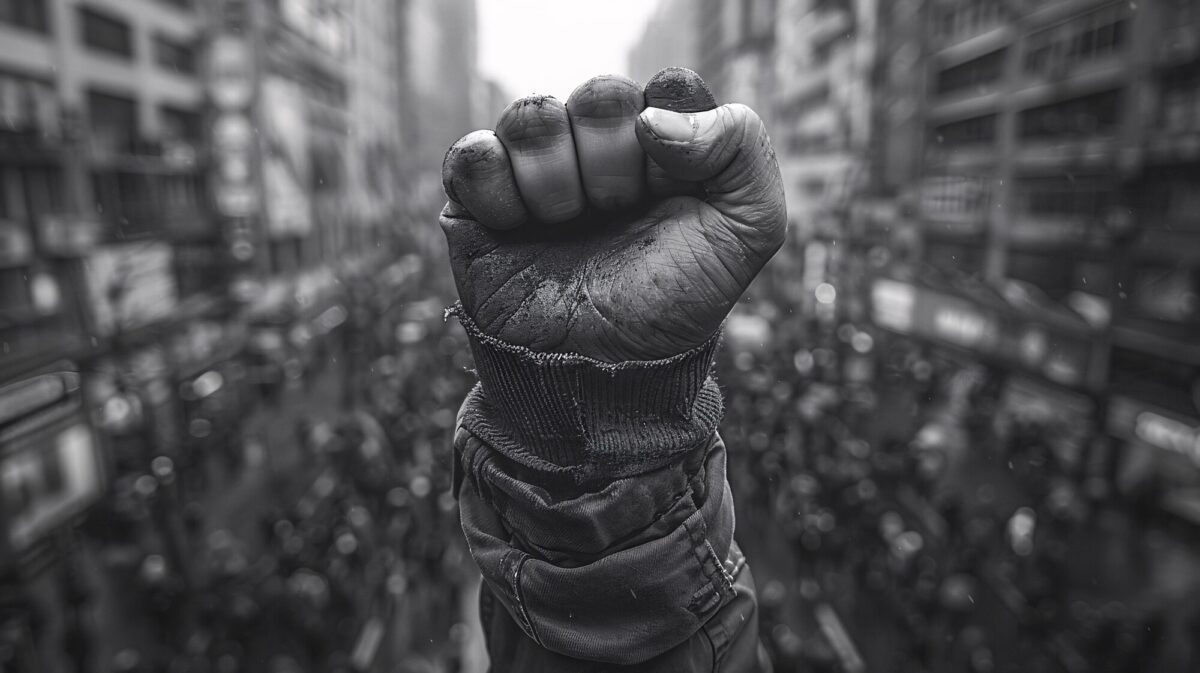On December 10, the world celebrates International Human Rights Day, which reminds us of the adoption of the Universal Declaration of Human Rights (UDHR) in 1948. This document symbolizes humanity’s quest for freedom, equality, and dignity. In 2024, the theme of this day sounds like a call to action: “Our rights, Our future, Right now”. However, in Eastern Europe and Central Asia (EECA), the events of recent years make us wonder: is the UDHR still a beautiful theory, far from real life?
The region is witnessing serious deviations from the principles of the declaration. Basic rights are under attack: freedom of speech, freedom of assembly, protection of vulnerable groups, including LGBTIQ+ people, and the work of civil society organizations. The influence of external forces, primarily russia, is strengthening authoritarian tendencies and suppressing democratic aspirations.
Georgia: the road from democratic progress to pressure and censorship
The situation in Georgia is deeply worrying. The law on “foreign agents” adopted on May 28, 2024, was a serious blow to freedom of speech and the work of non-profit organizations (NPOs). This law, which requires organizations that receive foreign funding to register as “foreign agents,” has created conditions for the suppression of civil society. Media and NPOs assisting key groups face new bureaucratic barriers, fines, and the threat of closure.
The LGBTIQ+ community has been particularly vulnerable. In 2023, radical groups disrupted the Tbilisi Pride parade and the authorities failed to prevent the violence. Moreover, in 2024, the Georgian Parliament passed anti-LGBTIQ+ laws masquerading as a defense of “family values.” These measures increase censorship, restrict the right to peaceful assembly, and set a dangerous precedent: the rights of any group can be violated under the pretext of “traditions.”
The protests that have swept the country since the 2024 parliamentary elections are a response to the authorities’ actions that threaten democratic foundations. Instead of protecting human rights, Georgia is increasingly under the influence of pro-Russian forces that undermine its European ambitions.
Kyrgyzstan: stifling civil society and fighting against equality
In Kyrgyzstan, the situation is no less alarming. The law “On Non-Profit Organizations” adopted in 2024 practically copies the russian approach to “foreign agents” by introducing the concept of a “foreign representative”. This step complicates the work of NPOs that depend on international funding to implement social projects.
In parallel, pressure on the LGBTIQ+ community is increasing in the country. The Law on “Traditional Social Values”, signed by the President in 2023, prohibits information that, in the opinion of the authorities, contradicts these values. Moreover, the Parliament’s refusal to pass an anti-discrimination law demonstrates a complete disregard for equality and human rights. Kyrgyzstan, previously considered one of the freer states of Central Asia, is losing this reputation. And its path increasingly resembles the russian scenario.
Human rights: the challenge of the present, the foundation of the future
The slogan of 2024 – “Our rights, Our future, Right now” – sounds especially acute in the context of human rights being threatened in EECA. The struggle for these rights is not only a task for individual countries but also a challenge for the international community.
The UDHR should not be a monument to history, but a living instrument of the struggle for freedom. Confronting authoritarian practices, defending civil society, and putting pressure on governments that support repression – these are the real steps to ensure that human rights are no longer an unattainable reality, the spread of authoritarianism is halted and the region is given back the chance for a stable and free future.
Also read:
Politics and LGBTIQ+ people: how hate rhetoric becomes a campaign tool in Moldova


